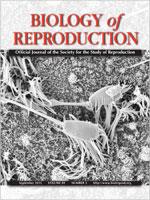Maternal diet can significantly skew the secondary sex ratio away from the expected value of 0.5 (proportion males), but the details of how diet may do this are unclear. Here, we altered dietary levels of salt (4% salt in the feed) and/or fructose (10% in the drinking water) of pregnant rats to model potential effects that consumption of a “Western diet” might have on maternofetal growth, development, and sex ratio. We demonstrate that excess fructose consumption before and during pregnancy lead to a marked skew in the secondary sex ratio (proportion of males, 0.60; P < 0.006). The effect was not mediated by selective developmental arrest of female embryos or influenced by fetal position in the uterine horn or sex-specific effects on sperm motility, suggesting a direct effect of glycolyzable monosaccharide on the maternal ovary and/or ovulated oocyte. Furthermore, combined excess maternal consumption of salt and fructose-sweetened beverage significantly reduced fertility, reflected as a 50% reduction in preimplantation and term litter size. In addition, we also noted birth order effects in the rat, with sequential implantation sites tending to be occupied by the same sex.
How to translate text using browser tools
12 June 2013
Maternal Fructose and/or Salt Intake and Reproductive Outcome in the Rat: Effects on Growth, Fertility, Sex Ratio, and Birth Order
Clint Gray,
Sophie Long,
Charlotte Green,
Sheila M. Gardiner,
Jim Craigon,
David S. Gardner

Biology of Reproduction
Vol. 89 • No. 3
September 2013
Vol. 89 • No. 3
September 2013
fertility
fructose
nutrition
rat
reproduction
salt
sex ratio




